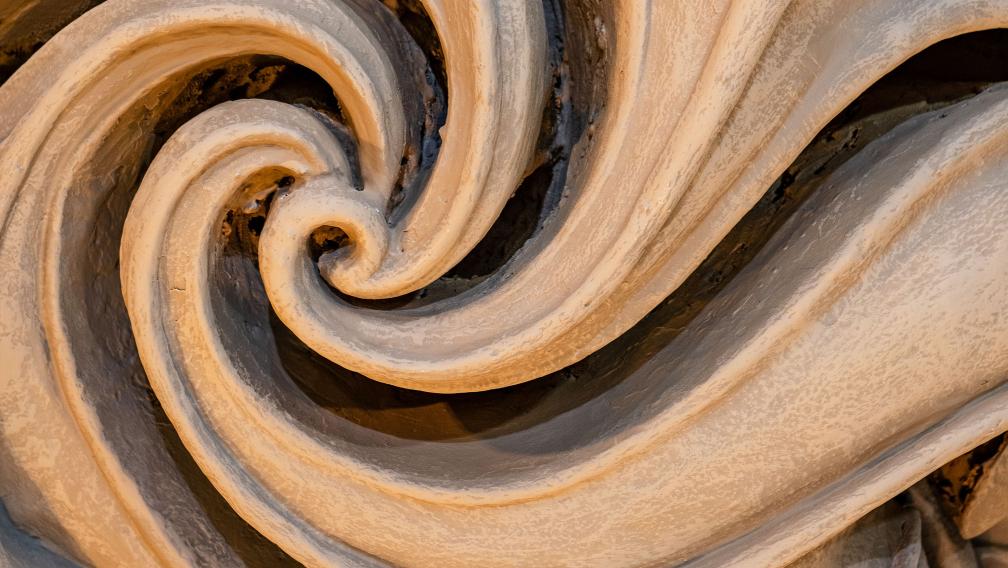Five Ways Into Sunday’s Scripture: What Have We Got to Lose?

A song of ascents.
I lift up my eyes to the mountains —
where does my help come from?
My help comes from the Lord,
the Maker of heaven and earth.
He will not let your foot slip —
he who watches over you will not slumber;
indeed, he who watches over Israel
will neither slumber nor sleep.
The Lord watches over you —
the Lord is your shade at your right hand;
the sun will not harm you by day,
nor the moon by night.
The Lord will keep you from all harm —
he will watch over your life;
the Lord will watch over your coming and going
both now and forevermore.
Psalm 121
“It’s not a competition!” we say. But we do love the binary clarity of their outcomes. Getting it right — faith, that is — has always been exceedingly important to the entire spectrum of religious practitioners.
After some big sports championships, and soon, the Oscars, we will have witnessed several prominent winners publicly thanking God for their good fortune. Cue the groans and eyerolls — and some “Amens.” There are some religious people who are stridently opposed to displaying signs of their faith in any kind of performative way, including ashes on foreheads, jewelry crosses, tattoos, and the ubiquitous John 3:16 signs. Some folks even take offense when they see them, saying, “Your faith should be kept private!” Except that Christian disciples are taught to evangelize, and a posture of gratitude is the most common expression of faith. And symbols and gestures are often as, or more, meaningful to the beholder.
In psalms like Psalm 121, we are happy to rest in the assurance that God’s presence and interventions are attributed to all things good. But when bad things happen, we’ve been conditioned to look to earthly reasons as the cause, including demons as Jesus encountered in the desert, testing our demonstrable faith. And so, it’s easy to see why people infer that when winners thank God for their achievements, it’s because they believe that God arranged it somehow, or that they earned God’s favor.
But what if a triumph for one is tragedy for another? Are there winners and losers in God’s kin-dom? What does unassailable faith look like, anyway? If it’s not transactional, how can we know? It seems that the early Christians in Rome were debating these questions with Paul, too. These might be some questions we meet on our journey through the wilderness.
Taken together, our scriptures for today lean harder into our presence to God, rather than the idea that God seeks and selects to whom and where to appear. It is we who are meant to do the seeking, the journeying. David lifted his eyes to the hills, Abram said yes to relocating to an unknown destination, and Nicodemus, a revered scholar, crept through the dark of night. And of course, Jesus went into the desert for forty days, completely empty-handed, and refused to bargain. They all had to let go of something to enter their journey: comfort, fear, nihilism, control, certainty, safety…
What have we got to lose?
—Kathryn Carroll
THEOLOGY
In Debie Thomas’ Lenten Journey with Jesus, she reconsiders the well-trod verse from the Gospel: John 3:16. A range of artists’ renderings of Nicodemus and Jesus are included in her essay.
SOCIAL JUSTICE
Greg Garrett, a frequent Trinity guest speaker, reports on Time to Wake Up, a “national conversation about racism in the white church.” Quoting the Very Rev. Dr. Kelly Brown Douglas, “The work of anti-racism is gospel work.” Meanwhile, some hate mail that Mr. Garrett received quoted some Gospel verses, too, and called anti-racism work “unchristian.”
POETRY
“The Place Where We Are Right” by Yehuda Amichai.
VISUAL ART
The great artist Henry O. Tanner imagines the scene between Jesus and Nicodemus.
MUSIC
“Alegbegbe” (For God So Loved the World) by Ephraim Amu (1958, text: John 3:16 in Ewe) performed by the Harmonious Chorale Ghana and the Ghana National Symphony Orchestra in 2019.
Coming Soon
This Sunday at 10am, theologian and poet Pádraig Ó Tuama joins the Discovery community to discuss Conflict, Forgiveness, and Poetry.
How have African Americans throughout history utilized the Apostle Paul and his letters in their writings to protest and resist oppression? On May 5–7, join Dr. Lisa Bowens at Trinity Retreat Center for African American Readings of St. Paul, an opportunity to journey through the centuries by engaging select portions of works by Black authors who lived from the 18th to the 20th century.





